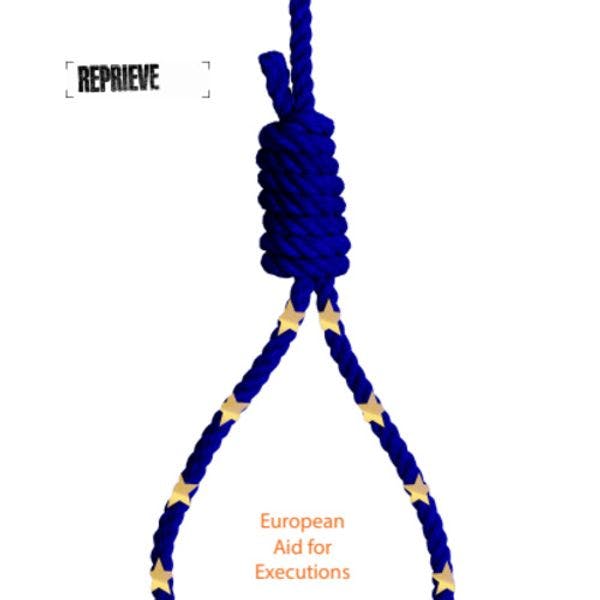Aide européenne pour les exécutions
Ces dix dernières années, l'Angleterre a donné plus d'argent qu'aucun autre pays européen à la police anti-drogue en Iran et au Pakistan, deux pays qui utilisent activement la peine de mort pour les délits de drogues. Pour en savoir plus, en anglais, veuillez lire les informations ci-dessous.
Abonnez-vous à l'Alerte mensuelle de l'IDPC pour recevoir des informations relatives à la politique des drogues.
UK taxpayers’ money has enabled as many as 2,917 brutal executions in Iran and more than 112 pending death sentences in Pakistan, a report from legal action charity Reprieve has shown. Many of the sentences have been handed down to women and children, as well as a number of British nationals.
Reprieve’s European Aid for Executions report is the result of a two year investigation which sourced classified overseas death row data and compared it with reports on European aid to foreign police forces. It found that UK funding routinely comes with targets encouraging arrests likely to result in death sentences, despite a Government commitment to encourage global abolition of the death penalty.
The research confirms that over the last ten years Britain has given more money than any other European country to drug police in Iran and Pakistan; countries which aggressively pursue the death penalty for drug offences and boast the world’s highest per capita execution rate (Iran) and the world’s largest death row population (Pakistan).
Reprieve found that the UK has given more than £20 million to drug agents in these countries, frequently citing capital convictions secured in formal measurements of the money’s success. This funding is channelled through the UN’s Office for Drugs and Crime, and goes toward training, intelligence-sharing and equipment used for pursuing alleged drug offenders (including body scanners, sniffer dogs and night vision goggles).
British support of this nature can be directly tied to at least 2,917 executions in Iran and 112 death sentences in Pakistan, based on the periods over which British aid was provided and the law-enforcement led “supply control” operations it supported. While drug offences made up the main charges in all of these cases, both countries’ drug courts fall woefully short of international standards, and in Iran’s case drug allegations have been used as a pretext for the persecution of political dissidents.
Keep up-to-date with drug policy developments by subscribing to the IDPC Monthly Alert.
